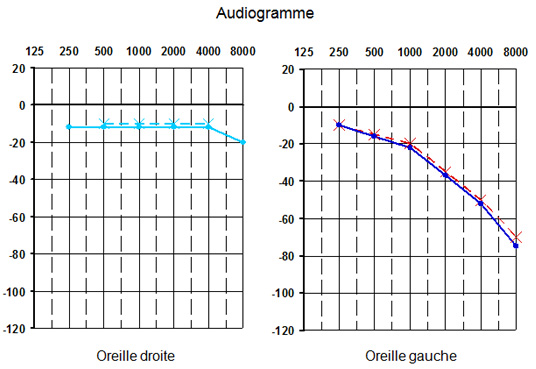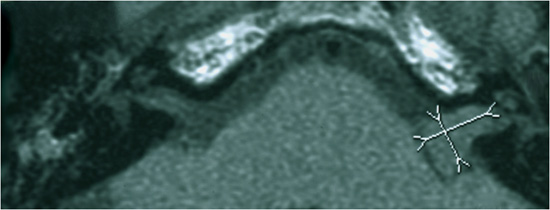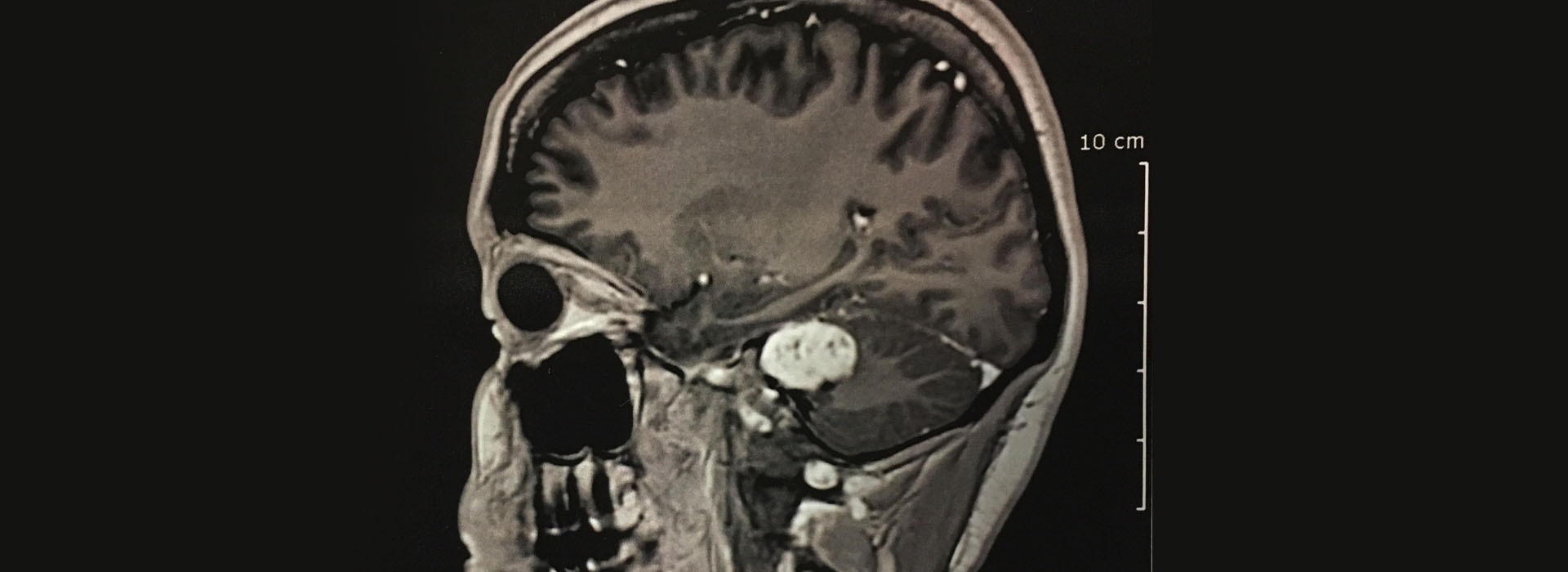Eighth nerve tumour and other angle tumours
These tumours are often discovered through imaging conducted after atypical vertigo or other warning signs such as balance disorders, deafness or tinnitus. In eighth nerve tumours, it should be noted that the dizziness rarely reveals anything useful. This is explained by the slow development of these tumours and therefore the central compensation mechanisms that are gradually established.
In general, eighth nerve tumours are detected by unilateral perception deafness or tinnitus. Dizziness and vertigo, when present, can come in all forms, Meniere’s disease, positional vertigo, etc. or may be manifested by isolated balance disorders.
An otoneurological assessment will specify the dysfunction of the inner ear and indicate a neuroma. Caloric and rotational tests often reveal hyporeflexia or areflexia on the side of the deafness. The tests for evoked myogenic potentials induced by loud clicks often show a lack of response on the same side.

These anomalies associated with deafness necessitate tests for auditory evoked potentials (AEP) which will most often identify the retrocochlear origin of the deafness.
A brain MRI focusing on the internal auditory canals will on its own enable the physician to visualize the neuroma (left acoustic neuroma, figure below), specify its size and location in the canal or cerebellopontine angle. At this time, other angle tumours causing dizziness will be revealed: meningiomas, epidermoid cysts, etc.

In such cases it is important to conduct an MRI when there is any kind of unexplained unilateral problem in the eighth cranial pair.
Treating eighth nerve tumours
Treatment may comprise:
- monitoring;
- Gamma knife treatment;
- or surgical removal.
The choice of treatment depends on the size of the tumour, whether it is located in the canal or cerebellopontine angle, and the patient's age.
In some cases, Gamma Knife microradiosurgery is used. This surgery stabilizes the progression and potential growth of the tumour and, when possible, is less invasive than surgical resection in patients whose hearing and vestibular function are preserved. This surgery is done in different facilities in France, including Salpêtrière hospital in Paris.
